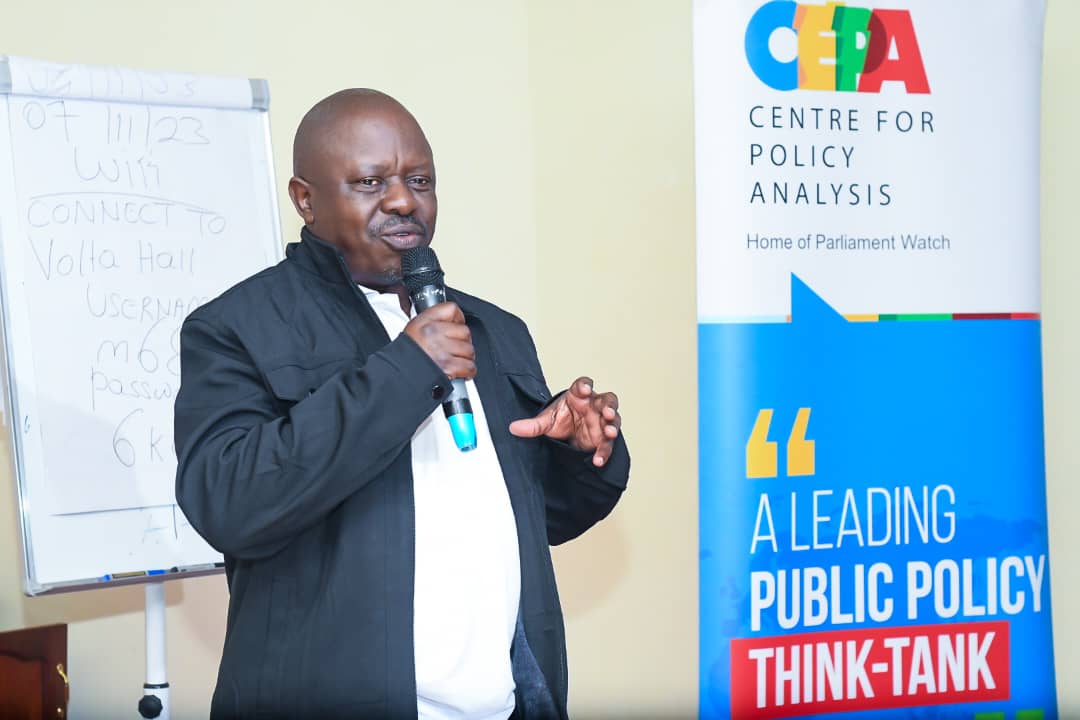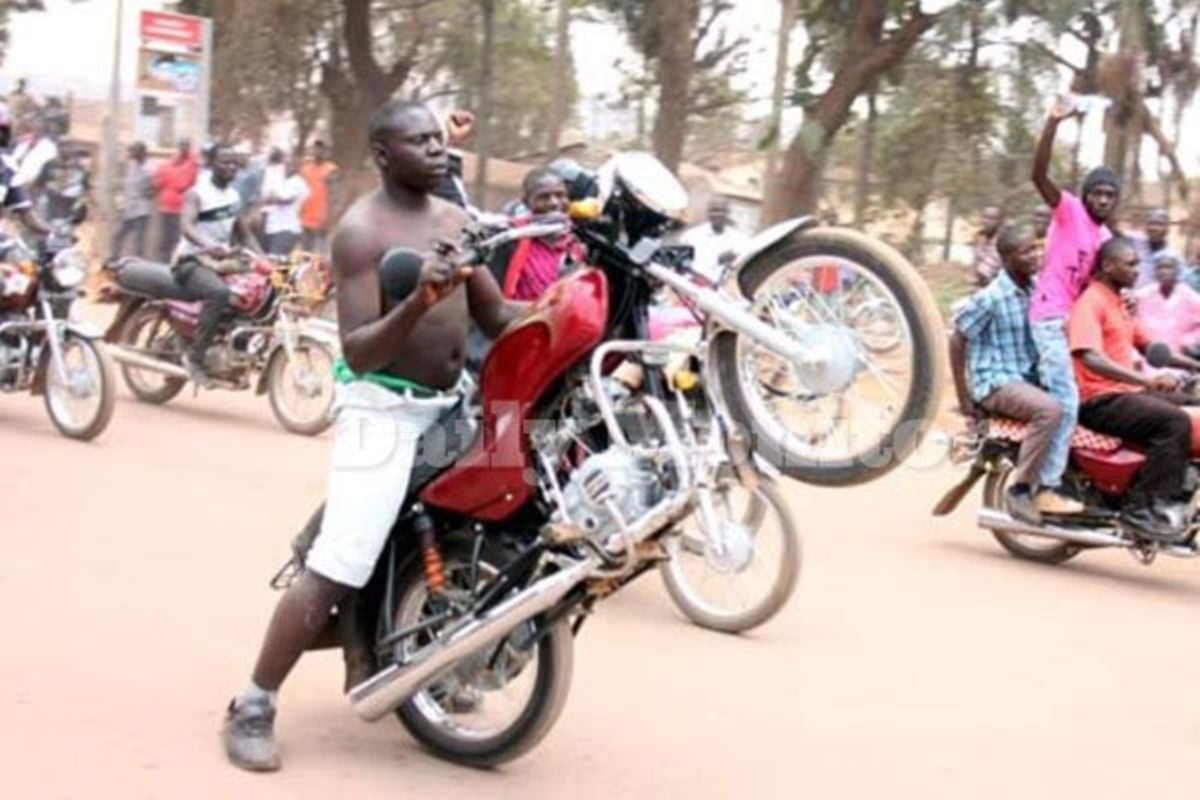Prime
Boda bodas decry ‘continued politicisation’ of their business

Cuthbert Isingoma making a presentation at Hotel Africana on November 7, 2023. PHOTO/ ROLAND NASASIRA
What you need to know:
- Gyaviira’s counterpart, Fred Kateregga, reechoed similar sentiments, stating that politicians only run to motorcyclists during time for campaigns and elections and mind less about some of the issues that affect them.
The Vice chairperson of central region boda boda association, Moses Gyaviira has decried continuous politicisation of the boda boda sector, something he said has led to continued disorganisation of the sector where some riders in the sector are untouchable, yet the less privileged allegedly suffer the consequences of the law.
“Whoever wants to start a political party or organisation targets boda boda associations. These are the same people (politicians) saying that for boda boda riders to benefit from government programs, they should form associations. Government must do all it takes to remove politics from the boda boda industry,” Mr Gyaviira said Tuesday during a meeting among the boda boda leadership in Kampala about information dissemination on the road safety regulations, addressing the key risk behavioural factors that cause road crashes.
Gyaviira’s counterpart, Fred Kateregga, reechoed similar sentiments, stating that politicians only run to motorcyclists during time for campaigns and elections and mind less about some of the issues that affect them.

“The government and politicians develop laws to regulate the boda boda industry but instead end up becoming the problem. When motorcyclists are caught violating traffic laws and causing road crashes, their motorcycles are impounded but released shortly because it is some politician’s business. They (politicians) tell police not to touch their voters. If politics is not removed from this sector, all the laws being introduced are useless,” Mr Kateregga said.
Gyaviira and Kateregga’s pleas come after the government recently released new road safety regulations addressing the key behavioural risk factors to prevent occurrence of road crashes across the country.
While making his presentation, Cuthbert Isingoma on behalf of Centre for Policy Analysis (CEPA) and other civil society organisations under their umbrella organisation Road Safety Advocacy Coalition in Uganda (ROSACU) said the new regulations are meant to help government operationalize the laws in the traffic and road safety act.
It should be recalled that Parliament passed the Traffic and Road Safety Act 1998 (Amendment) Act 2020 on January 29 2020 that was assented to by the president on May 15 2020. Since then, the ministry of works and transport embarked on review of existing regulations and formulation of new regulations where necessary to fully operationalize the act.
“We are not penalizing you by reviewing some of the revised regulations. We are trying to create harmony and discipline on the road across all sectors to significantly reduce and prevent road crashes,” Isingoma said.

One of the boda boda riders speaks during the meeting on information dissemination on key behavioral risk factors
According to Isingoma, some of the revised regulations include the demerit points system as a road safety intervention to supplement the express penalty scheme to improve driver behavior on the roads, regulation of provision of transport services by digital transport companies such as Uber, Bolt and Safe Boda or SafeCar that are required to obtain a license from the ministry of works and transport and introduction of a number of provisions to remove ambiguities in the existing law on driving under the influence of alcohol and drugs, among others.
Esther Sharon Busiku, the Project lead, road safety at Centre for Policy Analysis noted that on top of releasing the new regulations, it is the responsibility of CSOs to spread awareness to reduce road crashes.
“Government budgets to reach out to all road safety sector players is normally constrained by factors such as delays in releasing moneys or the money meant for road safety activities being diverted to other sectors yet people die on the roads every day. It is where supplementary efforts from organisations come in,” Busiku said.




